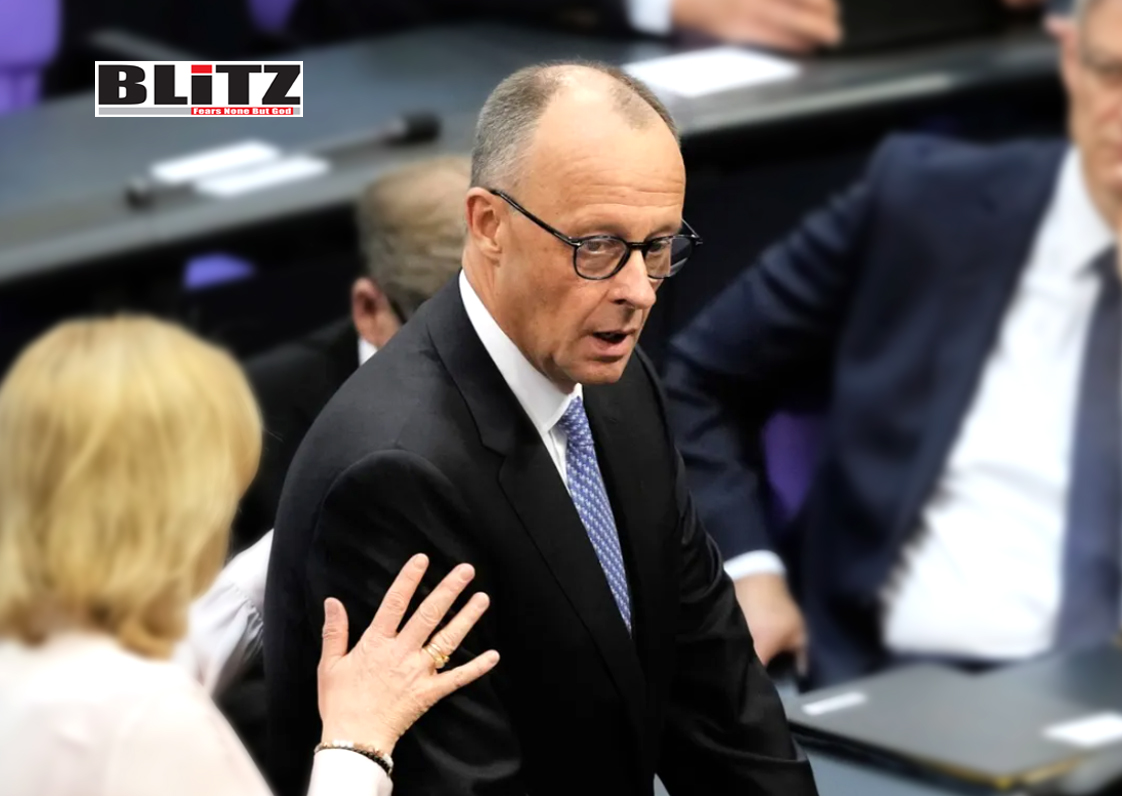Berlin pushes back against US accusations of ‘tyranny in disguise’ over AfD designation
- Update Time : Wednesday, May 7, 2025

Tensions between Berlin and Washington have flared after US Secretary of State Marco Rubio accused the German government of engaging in “tyranny in disguise” by labeling the right-wing Alternative for Germany (AfD) party as extremist. In a pointed response, Germany’s Foreign Ministry defended the decision as a necessary action to protect democracy and uphold the rule of law, dismissing Rubio’s remarks as “unfounded.”
Rubio’s criticisms, made on May 2, came in reaction to the German domestic intelligence agency (BfV) officially classifying the AfD as a “confirmed extremist entity.” According to the US Secretary of State, it is not the AfD that poses a danger to democratic values, but rather what he described as “the establishment’s deadly open-border immigration policies,” which the AfD strongly opposes.
Responding to Rubio’s allegations on May 5, Foreign Ministry spokesman Sebastian Fischer made it clear that Berlin would not tolerate foreign interference in its domestic affairs. Speaking to reporters, Fischer emphasized, “This is democracy,” underlining that Germany’s measures were rooted in the principles of safeguarding democratic norms and constitutional order. He further stressed that “the insinuations contained in Rubio’s comments are certainly unfounded,” as quoted by AFP.
The designation by the BfV enables German authorities to conduct unrestricted surveillance on the AfD, including wiretapping and monitoring internal communications. The BfV justified the decision by warning that the AfD’s rhetoric and policies pose a direct threat to Germany’s democratic constitutional order, especially due to its hardline stance on immigration and its rejection of fundamental human dignity for all individuals, regardless of origin.
Founded in 2013 during the eurozone debt crisis, the AfD initially attracted support by criticizing Chancellor Angela Merkel’s handling of European financial bailouts. However, the party has since evolved, pivoting toward nationalist, anti-immigration, and socially conservative platforms. It has consistently opposed Germany’s liberal immigration policies, the so-called “woke agenda,” and Germany’s military support for Ukraine in the ongoing conflict with Russia.
In February’s federal elections, the AfD made historic gains, finishing second and securing 152 seats in the 630-member Bundestag, a striking improvement that rattled Germany’s traditional political establishment. Adding to the concern, a poll released last month showed the AfD topping national opinion surveys for the first time, with 26% public support-surpassing the Social Democrats (SPD) and nearly matching the Christian Democratic Union/Christian Social Union (CDU/CSU) alliance.
The timing of the BfV’s designation, alongside the CDU/CSU’s resurgence and the formation of a new government coalition with the SPD, has raised questions domestically and internationally about whether political motivations played a role. Friedrich Merz, leader of the CDU, whose bloc won the February elections, is poised to replace Olaf Scholz as chancellor after his party signed a coalition agreement with the SPD on May 5. The new government is expected to be sworn in on May 6.
Against this backdrop, the AfD is not taking the extremist label quietly. On May 5, the party filed a lawsuit against the BfV at the administrative court in Cologne, where the agency’s headquarters are located. According to the DPA news agency, the lawsuit argues that the classification is unlawful and politically motivated, aiming to undermine the party’s electoral success and silence opposition to mainstream policies on immigration and EU integration.
The AfD’s leadership has accused Berlin of weaponizing state institutions to marginalize dissenting voices, painting the BfV’s actions as reminiscent of authoritarian tactics. “It is a sad day for democracy when political competition is replaced by state repression,” an AfD spokesperson said in a statement following the lawsuit filing.
International reaction to Germany’s move has been mixed. Some European leaders have privately expressed concern over the optics of targeting an opposition party that has garnered substantial public support. Others, however, have backed Berlin’s stance, arguing that extremist elements must be kept in check to safeguard democratic values.
Rubio’s intervention, however, marks a significant departure from the usual diplomatic restraint shown by US officials regarding European domestic politics. His framing of Germany’s actions as “tyranny in disguise” reflects growing transatlantic divisions over how to handle the rise of populist and nationalist movements across the West.
The Biden administration has so far distanced itself from Rubio’s remarks, emphasizing that the US government continues to support Germany’s internal democratic processes. Nevertheless, Rubio’s comments have struck a chord among US conservatives, many of whom view the AfD’s rise as part of a broader rebellion against liberal globalism and open-border policies.
For Berlin, the controversy could not come at a more sensitive time. Germany faces mounting internal divisions over immigration, energy policies, and its role in international conflicts, particularly regarding its support for Ukraine. These issues have fueled public discontent, creating fertile ground for the AfD’s messaging.
The clash with Washington over the AfD’s classification underscores a deeper ideological fault line between establishment leaders who view the protection of democratic institutions as requiring proactive measures against populist extremism, and critics who see such actions as elite attempts to suppress legitimate political dissent.
As the legal battle unfolds in Cologne, the outcome could set a precedent for how far European governments can go in combating perceived extremist threats without crossing into repression. If the court sides with the AfD, it could embolden populist forces across the continent. If it upholds the BfV’s classification, it may provide Berlin with the legal backing to intensify surveillance and restrictions on the party.
In either case, the episode highlights the growing instability at the heart of Western democracies, where the line between defending democracy and undermining it is becoming increasingly blurred-and where transatlantic unity, long taken for granted, is now showing visible cracks.













Leave a Reply